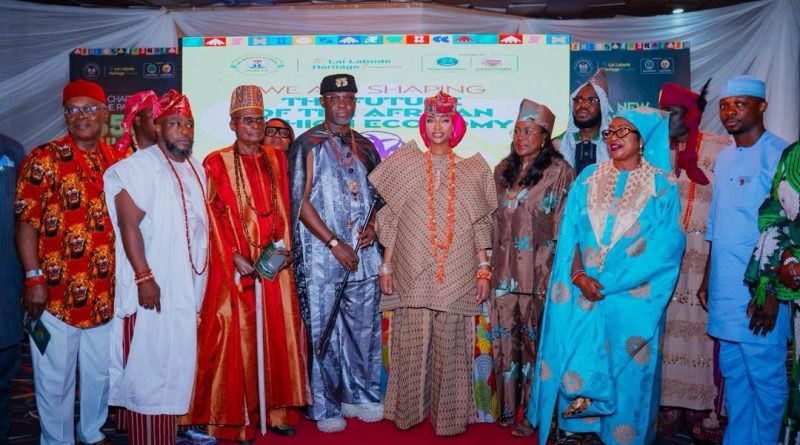Nigeria adopts Afroliganza vision to revolutionise African fashion industry
The Federal Government of Nigeria has announced its adoption of the Afroliganza Vision, a continental initiative aimed at uniting African nations through fashion, culture, and creative enterprise.
Fashion and Culture have become tools of diplomacy for economic growth and unity.
Minister of Art, Culture, Tourism, and the Creative Economy, Hannatu Musawa, announced this at a Press Conference on the African Fashion Renaissance in Abuja on Wednesday.
 The minister said that adopting the Afroliganza Vision demonstrates Nigeria’s bold national commitment to positioning culture, fashion, heritage, and the creative economy at the centre of its engagement with Africa and the global community.
The minister said that adopting the Afroliganza Vision demonstrates Nigeria’s bold national commitment to positioning culture, fashion, heritage, and the creative economy at the centre of its engagement with Africa and the global community.
She announced that the Confederation of African Fashion (CAFA), pioneered by the Lai Labode Heritage Foundation, aims to grow Africa’s fashion economy from $30 billion to $500 billion, creating jobs and generating foreign earnings.
“Afroliganza seeks to build a structured, values-driven fashion economy rooted in African heritage, led by African institutions, and positioned for global impact. Nigeria’s adoption of this vision signals a national commitment to place culture, fashion, heritage, and the creative economy at the heart of our engagement with Africa and the world,” Ms Musawa said.
Talking numbers
According to her, recent studies show that Africa exports textiles, cotton, apparel, and footwear valued at roughly $15.5 billion annually, while imports total about $23.1 billion. With global demand for African couture and textiles rising by over 40 per cent, the growth potential is significant.
In his address, Balogun Labode, Chairperson of the Lai Labode Heritage Foundation and President of CAFA, expressed gratitude to the Federal Government of Nigeria for its decisive leadership and partnership.
 He noted that Nigeria will become the first nation to sign the African Fashion Industry Growth Charter. He said the adoption marks a significant milestone in the country’s commitment to leading Africa’s fashion renaissance.
He noted that Nigeria will become the first nation to sign the African Fashion Industry Growth Charter. He said the adoption marks a significant milestone in the country’s commitment to leading Africa’s fashion renaissance.
He explained that CAFA will be crucial in mobilising policy, investment, and expertise to transform Africa’s fashion industry.
“Africa’s current fashion and textile industry is measured in the tens of billions of dollars, with estimates ranging from $30–$65 billion, and much of that value is lost to imports and limited local processing, according to AFDB, 2023.”
Export–import mismatch
Mr Labode highlighted the export–import mismatch, stating, “With Africa exporting over $10 billion worth of cotton-made products and importing over $20 billion worth of cotton-made materials, the mismatch presents a significant opportunity for growth.”
This is why a major goal of the Afroliganza movement is to increase the African fashion economy to $500 billion in the next 10 years.
 He added that CAFA will be the home of the African Global Fashion Games (AGFG) and mobilise public and private capital to expand local processing, modernise textile mills, and scale manufacturing to retain a greater share of value in Africa.
He added that CAFA will be the home of the African Global Fashion Games (AGFG) and mobilise public and private capital to expand local processing, modernise textile mills, and scale manufacturing to retain a greater share of value in Africa.
READ ALSO: ‘I don’t blame the girl, I blame our country’ – Seun Kuti speaks on Regina Daniels’ marriage
Egbaliganza 2026 will be held in March next year, with 50 countries in attendance as a proof of concept for Afroliganza, alongside national fashion festivals.
The maiden edition of the African Global Fashion Games is scheduled for Abuja and Egypt in 2027, aligned with FESTAC at 50, where African countries will compete and showcase their creativity.
Ambassadors from China, Botswana, Uganda, India, Korea, Tunisia, and Liberia attended the event, as well as management staff of the Ministry of Art, Culture, Tourism and Creative Economy and the Lai Labode Heritage Foundation.


